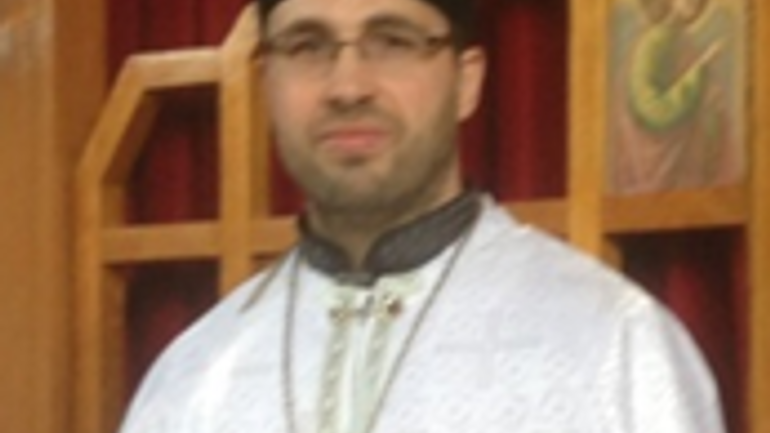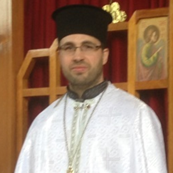With what shall we evangelise? Ukrainian Greek Catholics and their role in the Universal Church

 There can be no doubt that it is when the Church acts as one body, she is most effective at making the beauty and truth of the Gospel known among the nations. As such, it is important for Ukrainian Greek Catholics to examine themselves, and to ask what role they have if they are to faithfully take up their part in the Great Commission – that is, the duty of going out into the world and baptising all people in the Name of the Father and of the Son and of the Holy Spirit. Greek Catholics are, after all, called to be the ‘other lung’ of the Church: to represent the ancient, Byzantine tradition alongside the Roman, or Latin, tradition. Yet, at least in some places, this is not well understood. Instead, we succumb to the temptation of acting in an insular way: of behaving more like an ethnic chaplaincy rather than the scintillating and beautiful Church of the East. What then, we must ask, is our purpose, and how should we be going about our work?
There can be no doubt that it is when the Church acts as one body, she is most effective at making the beauty and truth of the Gospel known among the nations. As such, it is important for Ukrainian Greek Catholics to examine themselves, and to ask what role they have if they are to faithfully take up their part in the Great Commission – that is, the duty of going out into the world and baptising all people in the Name of the Father and of the Son and of the Holy Spirit. Greek Catholics are, after all, called to be the ‘other lung’ of the Church: to represent the ancient, Byzantine tradition alongside the Roman, or Latin, tradition. Yet, at least in some places, this is not well understood. Instead, we succumb to the temptation of acting in an insular way: of behaving more like an ethnic chaplaincy rather than the scintillating and beautiful Church of the East. What then, we must ask, is our purpose, and how should we be going about our work?
The Ukrainian Greek Catholic Church, firmly rooted as it is in the tradition of Kyiv – a tradition that began when Prince Wolodymyr sent his courtiers to seek out a religion fit for his emerging nation – is a Church whose most significant treasure must surely be her Liturgy. As legend reminds us, when Wolodymyr’s courtiers returned, they reported that the prince should choose for his people the Byzantine (Christian) religion, as, when they visited Hagia Sophia in Constantinople, they ‘…knew not whether they were in heaven or on earth,’ such was the beauty of the Liturgy they experienced there. Indeed, there are many today who would acknowledge the transcendent, mysterious nature of our Eastern traditions as the thing that drew them into the Church and saw them make a Christian commitment; so it is clear that the Byzantine religion – whether in its Greek or Slavic form – retains the power it once exercised over the court of the great prince of Kyiv.
That being the case, Ukrainians do neither themselves nor the Gospel any service when they coyly assume that the Church as they know it will be of no interest to the non-Ukrainian world. The Church is the Church, rather, and the Church as Ukrainians know her is a splendid jewel – a treasure that should inspire generosity. So how can the Ukrainian Church be generous? What response can her members make to their inheritance that is faithful to their calling as Christians – as disciples of Christ – to make Him known?
Since we have established that, before anything else, the Ukrainian Greek Catholic Church is an beneficiary of the same Liturgy that first converted the Ukrainian people, I would argue that she can, above all, seek to celebrate that Liturgy in fidelity and love. This means, of course, seeking to know and observe her Byzantine liturgical traditions to the most faithful possible extent, in the knowledge that as she does so, she is making manifest the fullness of the Gospel – the living image of Christ.
You see, the Liturgy as understood in Eastern tradition is not just the order given to our weekly assembly, nor is it a mere repository of our communal memory. To be precise, the Liturgy is a re-presentation of Christ. In the Liturgy, Christ offers Himself to all the faithful and, by extension, to all the world. In the Liturgy, Christ is encountered by us, and in being encountered, transforms us into something more like himself and less like ourselves. In the Liturgy, what is inherently material and earthly becomes something spiritual and heavenly. In the Liturgy, Christ becomes really and truly known.
But to know what we have to offer – that is, the Liturgy – is one thing. The evangelistic task set for us by our Lord, however, is one that requires an understanding of one’s context. Who, for example, is going believe a message about the Prince of Peace in a land that has been at war forever? Likewise, who is going to accept the idea of the forgiveness of sins in a culture that no longer believes in the existence of sin? To preach these things is obviously vital, but to make them understood, they need to be cast in terms that are appropriate to the audience. Well, if I consider what Ukrainian Greek Catholics have to share, and the context in which they are called to share it – both in Ukraine and beyond – I would say that there is a fortunate correspondence. The world in which we find ourselves today is a world downright hungry for a sense of the numinous. The popularity of the Lord of the Rings, Harry Potter, Twilight; the emergence in the last generation of everything from fantasy role-play games to the New Age movement: these things together serve as reminders that as materialistic as our world has become, people still crave a sense of the mystical, of that which lies beyond.
And wonderfully, as we have seen, the Eastern liturgical tradition offers just that. From the aesthetic sense created by our vestments, our chant, our incense, and our flickering candles, to the awesome chord struck by our proclamation that the Incarnate Logos, Jesus Christ, the God-Man, is here present, there is no other place in this world where people can encounter such a thing so boldly and honestly held.
Both now and in the future, if Ukrainian Greek Catholics are to take seriously their role in the world to make known Christ and to baptise all nations; if they are to take up their part in the Universal Church and do what they can to contribute to the transfiguration of the human race, then they will hardly do better than to reflect on their holy traditions and celebrate them with fidelity, joy, and love. For Ukrainian Christians have something the world wants, and by its faithful celebration, will set fire to the light that draws all people unto God. Then the world may say as they encounter it, as did St Wolodymyr’s courtiers, that they ‘…knew not whether they were in heaven or on earth’.









